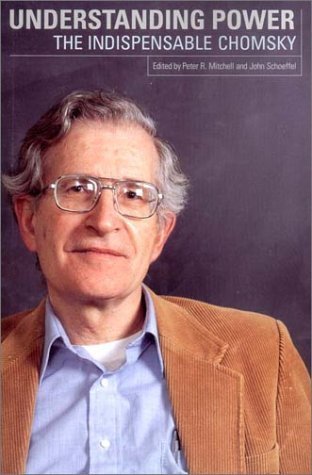More on this book
Community
Kindle Notes & Highlights
by
Noam Chomsky
Read between
August 16 - September 4, 2014
For example, take El Salvador in the 1980s. The purpose of U.S. policies there was to wipe out the popular organizations and support a traditional Latin American-style regime that would ensure the kind of business climate we expect in the region. So the independent press was destroyed, the political opposition was murdered, priests and labor organizers were murdered, and so on and so
every time popular movements have succeeded in dissolving power to a certain extent, there has been a deepening recognition among elites in the West that as you begin to lose the power to control people by force, you have to start to control what they think.
They’re “democracies,” because the right people are running them; if the right people aren’t running them, then they’re not “democracies.”
That would be extending the democratic system to economic power, and unless that happens, political power is always going to remain a very limited phenomenon.
No, the primary concern is to prevent independence, regardless of the ideology.
the assigned functions of Third World countries are to be markets for American business, sources of resources for American business, to provide cheap labor for American business,
U.S. interventionism has nothing to do with resisting the spread of “Communism,” it’s independence we’ve always been opposed to everywhere—and
countries that have developed economically are those which were not colonized by the West; every country that was colonized by the West is a total wreck.
“fascism” doesn’t mean gas chambers, it means a special form of economic arrangement with state coordination of unions and corporations and a big role for big business.
military spending doesn’t redistribute wealth, it’s not democratizing, it doesn’t create popular constituencies or encourage people to get involved in decision-making.
you have to maintain a pretense of constant security threats—and they can be Russia, they can be Libya, they can be Grenada, Cuba, whatever’s around.
to “make the economy healthy,” in the standard sense of the phrase: namely, ensuring corporate profits.
Shah fell in the Iranian Revolution in 1979,
achieving real democracy will require that the whole system of corporate capitalism be completely dismantled—because it’s radically anti-democratic.
the more a country tortures its citizens and the more egregious are the violations of human rights, the higher is U.S. aid.
So claims about our concern for human rights are extremely difficult to support:
The real goal is just maintaining obedience—as
states are not moral agents; they are vehicles of power, which operate in the interests of the particular internal power structures of their societies.
now that the Gulf War is over, the U.S. will try to ram through its rejectionist program for a settlement of the Palestinian question.
that was the big effect of the Gulf War: it sort of intimidated everyone, it was a big show of American power that demonstrated that the U.S. will use force to get its way wherever it feels like it,
no longer necessary for the U.S. to undermine all diplomatic initiatives in the Middle East, as we’d been doing for the past twenty years. Now we could just use force. The Gulf War was the first demonstration of that. So everybody was scared shitless by it, and Europe finally backed off on the question of Palestinian national rights:
if you had a truly capitalist society, everything would be a commodity, including freedom: there would be as much of it as you can buy. Well, since the U.S. is towards that end of the spectrum, it means there’s an awful lot of freedom around if you can afford it.
[Anarcho-syndicalism is a form of libertarian socialism that was practiced briefly in regions of Spain during its revolution and civil war of 1936, until it was destroyed by the simultaneous efforts of the Soviet Union, the Western powers, and the Fascists.]


